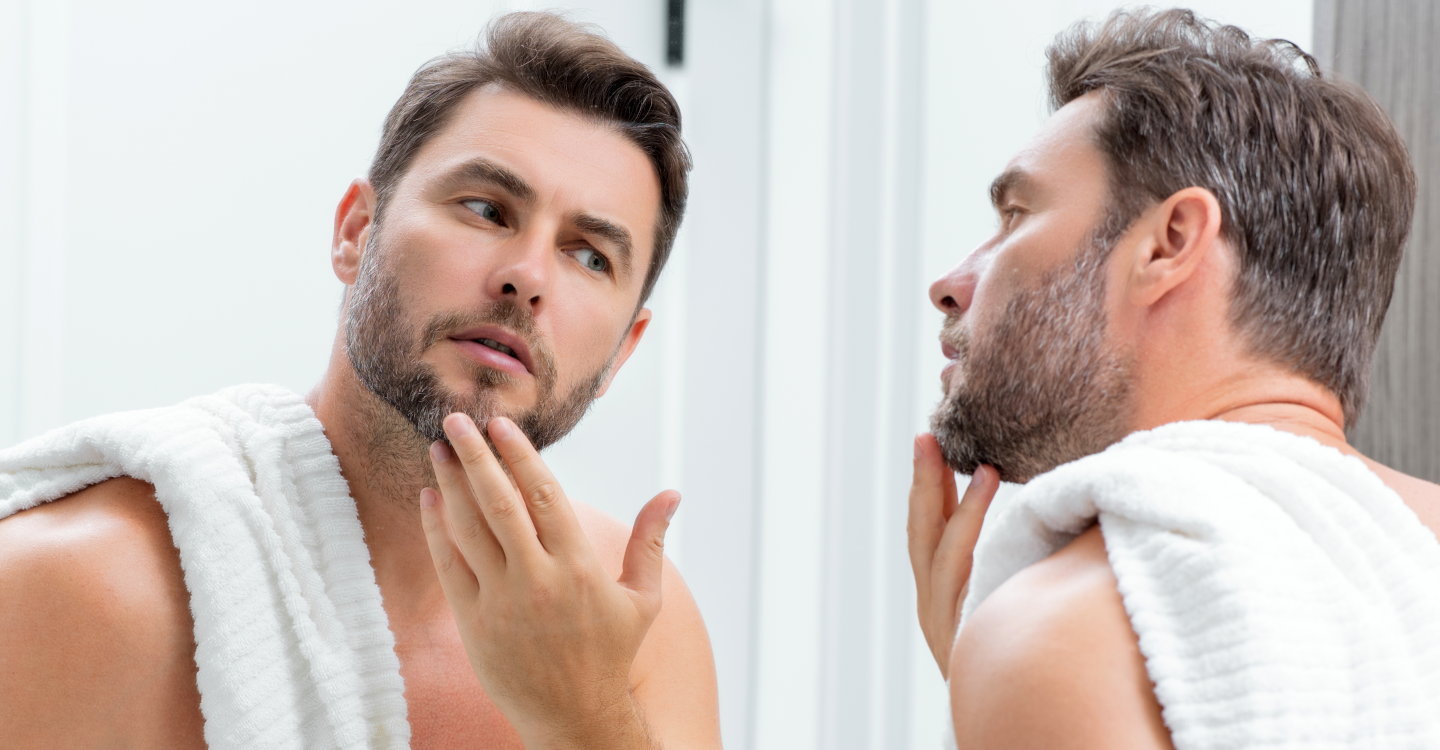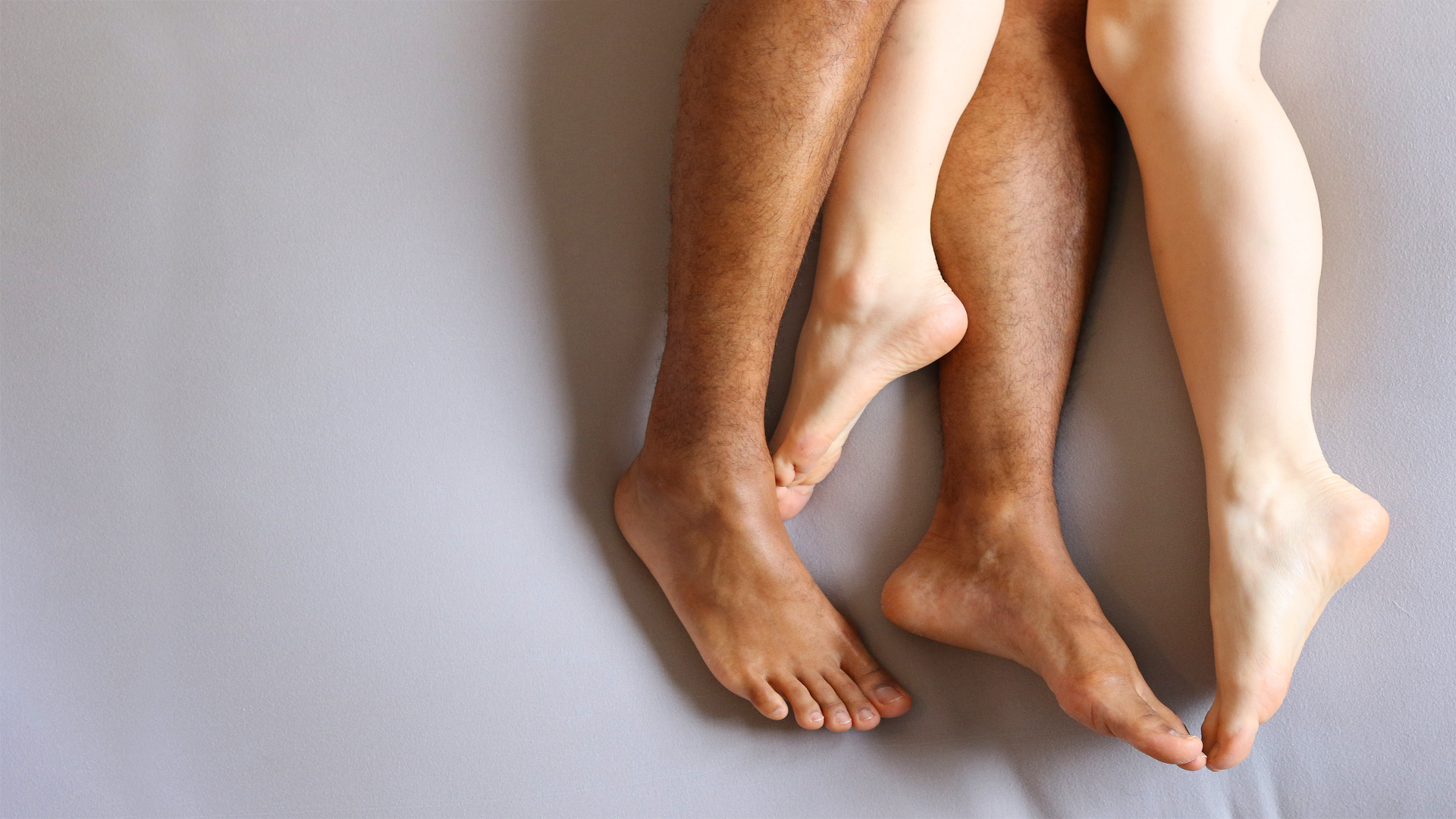Supercharge your day |
Our bodies are controlled and coordinated by hormones in a big way.
How we feel. How we look. How healthy we are…the list goes on. Yes, hormones have an impact on all of these things.
There are hormones that make us happy, that help us sleep, that regulate our metabolism, and control many other functions within the body.
We also have sex hormones that impact a variety of biological and chemical processes— and they’re really important.
Let’s take a look at exactly what sex hormones are, what they do, and how to increase your sex hormones to benefit your health as you age.
What are sex hormones?
Sex hormones are a group of hormones that play a huge role in the development and functioning of the reproductive system.
In males, the primary sex hormones (known as androgens) are testosterone and dihydrotestosterone (DHT).
These sex hormones are responsible for the growth and development of male reproductive organs. They also play a part in the development of male secondary sexual characteristics, like facial and body hair, plus the deepening of the voice during puberty.
Once puberty is over, they’re still vitally important, as they have effects on not just our sexual characteristics— but multiple aspects of health and wellbeing.
Although they’re needed for things like sperm production, fertility, sex drive, and sexual function, male sex hormones also play a role in energy levels, strength and muscle mass, bone density, and body fat distribution.
They’re also involved in red blood cell production, maintenance of libido, and regulating your mood and cognitive function.
What sex hormones are important in males?
There are some key differences between sex hormones in men and women. Although many of our hormones are the same, we have them in vastly different amounts.
For example, testosterone and DHT are the primary sex hormones in males, but these are produced in much lower quantities in women.
Whereas oestrogen and progesterone are the main sex hormones in women, while men produce these at much lower levels.
It’s testosterone, in particular, that’s responsible for the development of the male reproductive system during puberty and is crucial for the production of healthy sperm. It also plays a key role in maintaining muscle mass, bone strength, and overall energy levels.
DHT, on the other hand, is derived from testosterone and is more potent than testosterone itself. So much so that many of testosterone’s effects only occur once it has been converted into DHT.
In addition to testosterone and DHT, hormones like the luteinizing hormone (LH) and follicle-stimulating hormone (FSH) play a role in the regulation of male sex hormone production, too.
LH aids testosterone production by stimulating the testes, while FSH derived from the pituitary gland supports the maturation of healthy sperm cells.
Other androgens also have an impact on male characteristics and all-round health, including…
- Androsterone
- Androstenedione (A4)
- Androstenediol (A5)
- Dehydroepiandrosterone (DHEA)
There are lots of interactional effects between these androgens. But, as the main male sex hormone, testosterone is the one that we’ll focus on here as we take a look at what low levels mean for you— and what you can do to reverse the trend.

What health issues are linked to low male sex hormones?
Puberty might have come and gone long ago, but low levels of male sex hormones like testosterone can still have a profound effect on your overall health and wellbeing—no matter how old you are.
In fact, your sex hormone levels will change naturally with advancing age. So as you pass through your thirties, forties, and beyond, it’s important to take stock of what your sex hormones are doing and try to reverse any negative trend.
Ageing and male sex hormones: the trend
As you get older, changes in your endocrine system occur cause your total testosterone levels decline.
Free testosterone levels drop steeply too, while sex hormone-binding globulin increases (taking up even more of your total testosterone by not letting it remain free within your bloodstream to be put to use by the body).
So what are some of the big health impacts as a result of these hormonal changes in ageing males?
Low libido
A decline in testosterone production can lead to a decrease in libido and sexual satisfaction.
Erectile dysfunction
Testosterone helps you maintain healthy erectile function, so when your testosterone levels drop. This can cause problems with achieving or maintaining erections.
Fatigue
Low testosterone often equals low energy levels and reduced vitality. Feeling lethargic, a lack of motivation, and general tiredness can all occur when your testosterone levels are down.
Loss of muscle mass
Testosterone is an anabolic hormone, which means it promotes muscle growth and maintenance. So a drop-off can lead to muscle loss, decreased strength, and reduced physical performance.
Decreased bone density
Along with weakening your muscles, low testosterone also weakens the strength and density of your bones, which can increase your risk of osteoporosis and fractures.
Mood changes
Low levels of testosterone can influence your day-to-day mood, leading to things like abrupt mood swings, irritability, and an increased risk of depression.
Increased body fat
As testosterone helps regulate fat distribution in your body, low levels can lead to an increase in body fat, particularly in the abdominal and chest areas—which is why ‘man boobs’ (a.k.a. moobs) and a bigger belly often occur with increased age.
How to know if you have low sex hormone levels?

Don’t be too alarmed by all of this, though, as the extent and severity of the health issues above can vary depending on the individual and the degree of hormonal imbalance.
Similarly, some of these symptoms can occur as a result of other causes. Your testosterone levels may be absolutely fine—but you can still experience any of the effects mentioned above.
So how can you tell if any of these signs are a result of hormone deficiencies?
If you’re concerned that you may have low testosterone levels, your first step should be to consult with your healthcare professional for a proper diagnosis and medical evaluation.
A comprehensive check may include a combination of several things.
Symptoms assessment
Your healthcare provider will likely ask for a full run-down of your symptoms, medical history, and any specific concerns you might have related to your physical fitness, mood, energy levels, or sexual health.
Physical examination
A physical may then be set up to assess your secondary sexual characteristics, such as body hair distribution and testicular size.
Blood tests
Your hormone levels can be measured with a blood test, so one may be administered to determine the extent of any possible hormonal imbalance.
Further testing
In some cases, additional tests can be conducted to assess your bone mineral density, prostate health, or any other specific aspects of reproductive and overall health.
Home-testing kits
If you’re not overly worried about your testosterone—but just want to check where your levels are at as you age—then there are also various home-testing kits available.
Top tip: For a full look at what options you have to test your hormone levels at home, make sure to check out this guide. It covers everything you need to know about checking testosterone levels the DIY way.

How to improve your male sex hormone levels
If you’re diagnosed with low sex hormone levels, there are different treatment options available that can help improve your hormonal balance and alleviate your symptoms.
Hormone replacement therapy (HRT)
Testosterone replacement therapy (TRT) is a common form of hormone therapy for men with medically-low testosterone levels. This usually involves the administration of synthetic hormones through injections, topical gels, patches, or even pellets implanted under the skin.
The appropriate testosterone treatment will depend on the underlying causes, the severity of the hormone imbalance, and your individual circumstances.
But, hormone replacement therapy isn’t for everyone. Instead, there are also lots of things you can do yourself to reduce a sex hormone or testosterone deficiency and bring your testosterone levels back up to normal.
Lifestyle changes
Exercising regularly, eating a balanced diet, avoiding stress, and getting an adequate amount of sleep can all contribute to hormonal balance and help to restore your sex hormone levels naturally.
Address any underlying health conditions
In some cases, low testosterone levels can be a result of obesity, diabetes, or thyroid disorders. Diagnosis and proper management of these conditions can go a long way to improving your hormonal balance.
Take care of your mental health
Hormonal imbalances can have a negative impact on the mind as well as the body. Seeking psychological support in the form of counselling or therapy can be beneficial for managing the emotional and psychological symptoms associated with low androgen levels.
Supplements
Dietary supplements that contain testosterone-boosting ingredients can also help bring your sex hormone levels back up naturally and safely.
Should you try testosterone replacement therapy?
Going down the medical route of testosterone therapy is really only recommended in extreme cases, where sex hormone levels are dangerously low and are impacting day-to-day living.
For most of us, increasing our testosterone levels naturally is the way to go— especially if you’re just trying to stay a step ahead of age-related decline.
Lift your T levels naturally with testosterone boosters
Low levels of male sex hormones like testosterone can have significant health impacts on your libido, erectile function, energy levels, muscle mass, mood, and body fat.
So it’s important (for the sake of your health) not to let them drop too far. That’s where the lifestyle changes we talked about come into play.
And one of the easiest changes to make to your daily routine is to take a dietary supplement like TestoPrime.
All of the ingredients in the TestoPrime formula are handpicked for their ability to raise testosterone levels naturally, helping you to recover your strength, vitality, and manhood in the process.
If you’re looking for a boost to your mental, physical, and sexual health without having to make huge lifestyle modifications, TestoPrime has got you covered. Go get some.





